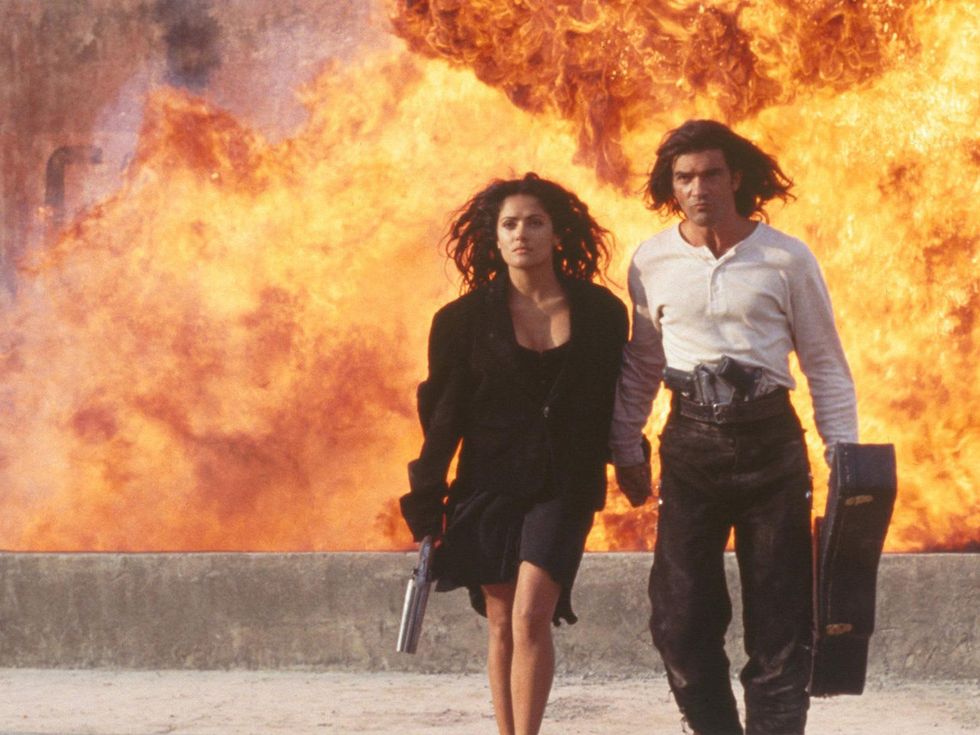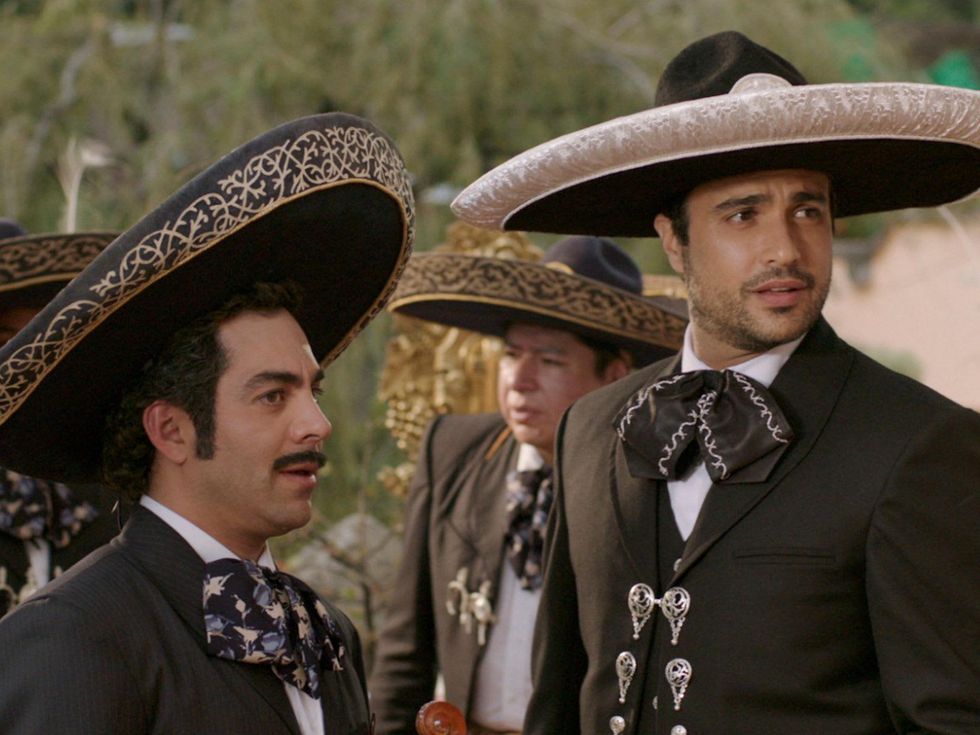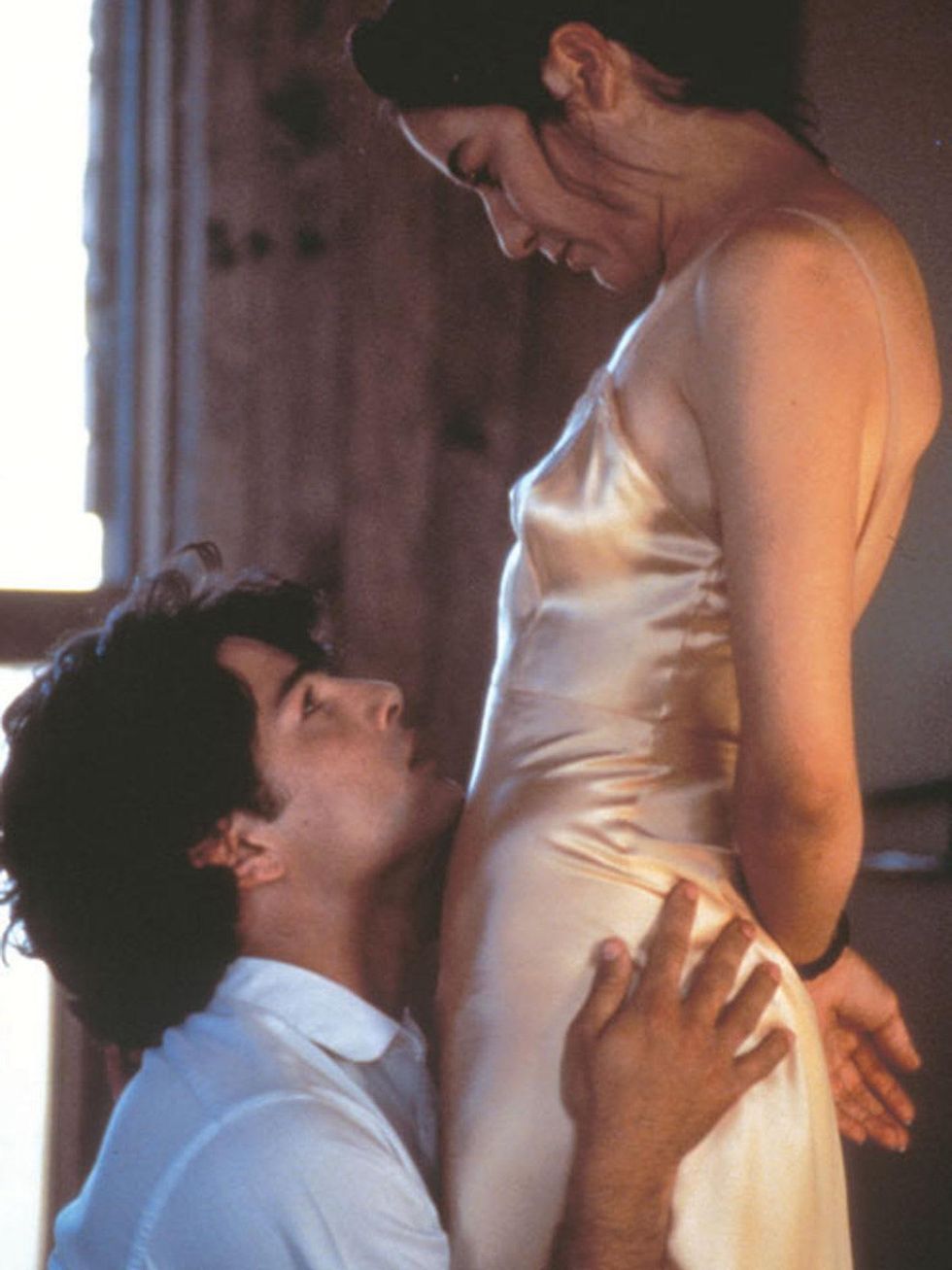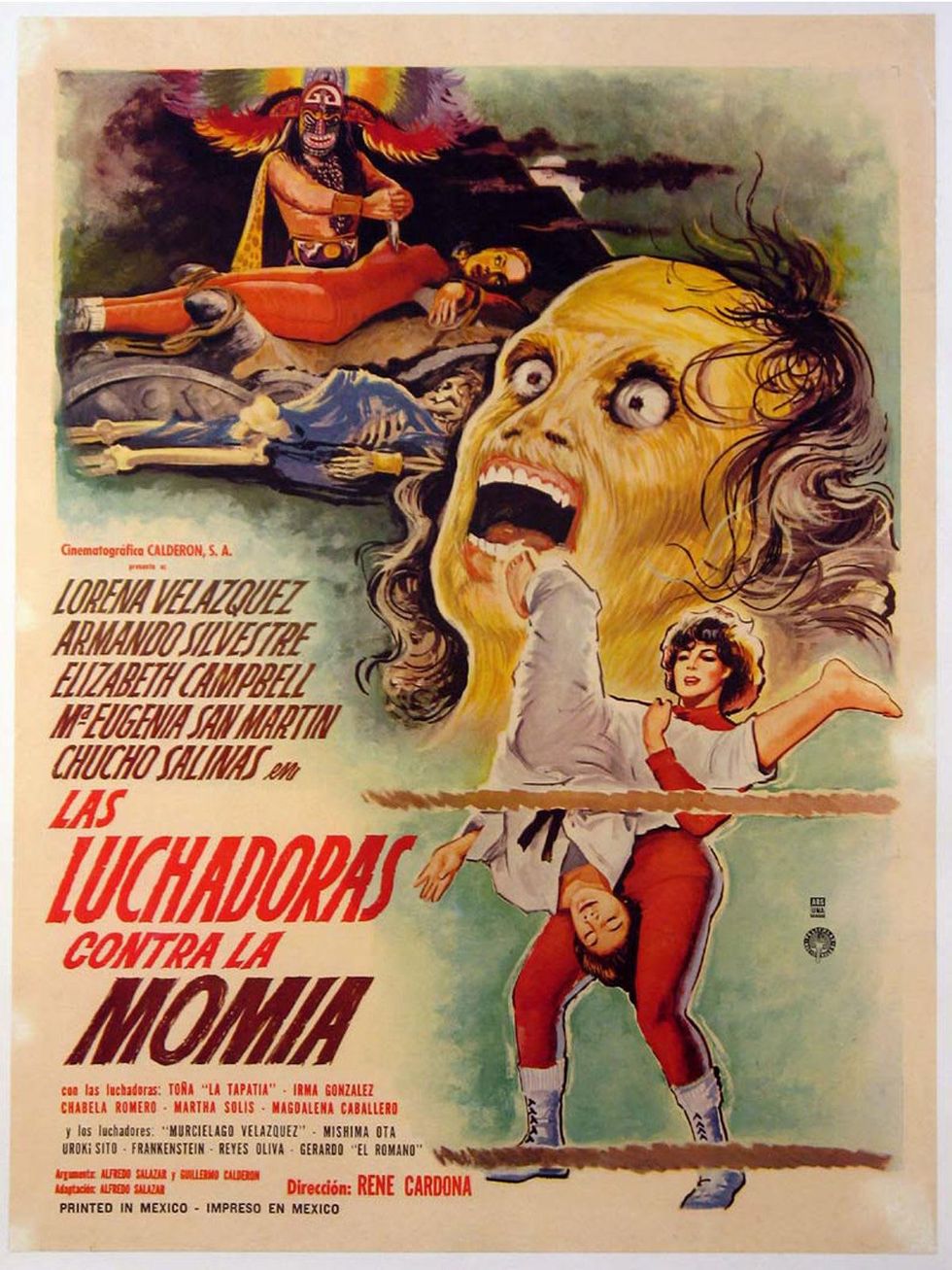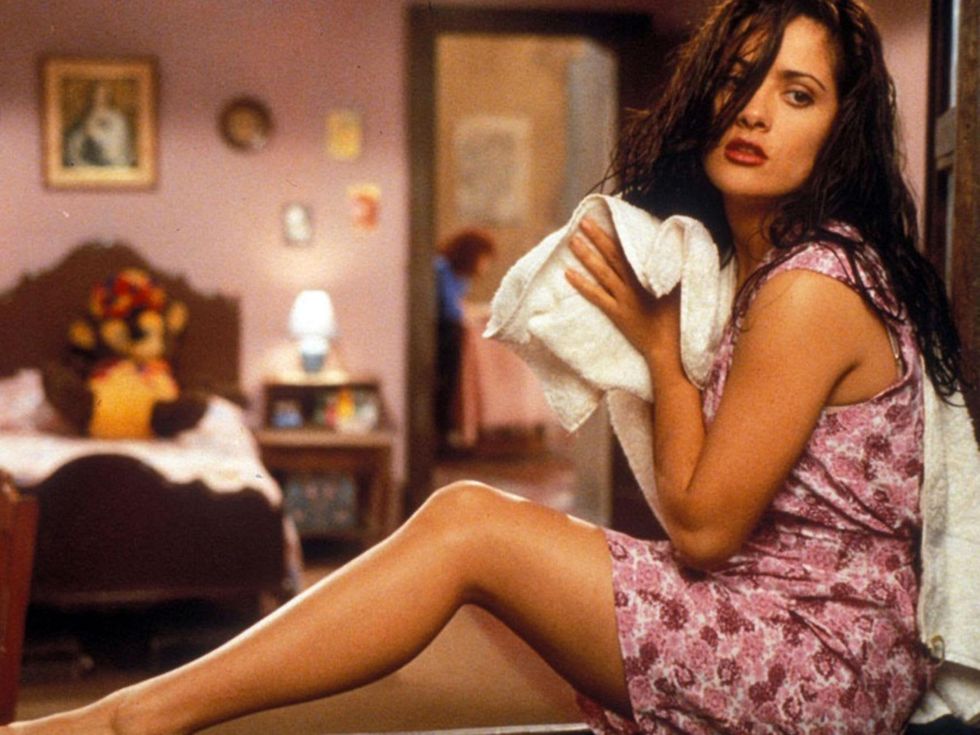What should a cineaste select to see while celebrating Cinco de Mayo? There are mucho options, to be sure, but here are five diversas peliculas that run the gamut from warm and fuzzy to fast and furious.
Like Water for Chocolate
One of the highest-grossing Mexican films of all time, director Alfonso Arau’s seductively delicious 1992 delight — based on the popular novel by Laura Esquivel, his wife at the time of the movie’s production — is an imaginative mixture of magical realism and romantic melodrama.
Tita (Lumi Cavazos), the youngest of three sisters in 1910 Mexico, falls in love with the handsome Pedro (Marco Leonardi). But she is bound by family tradition to remain unmarried, to care for her domineering widowed mother (Regina Torne). So Tita sublimates her passion into her cooking, often with fantastical results, in a decades-spanning tale that passionately extols culinary skills as art and alchemy.
Midaq Alley
Veteran Mexican director Jorge Fons audaciously (and, more important, successfully) transposed the acclaimed novel by Egyptian-born Nobel laureate Naguib Mahfouz from 1940s Cairo to then-contemporary Mexico City in this award-winning and heart-wrenching 1994 drama, the first film to make global audiences take note of the fiery phenom that is Salma Hayek.
It's the first film to make global audiences take note of the fiery phenom that is Salma Hayek.
Fons and scriptwriter Vicente Lenero deftly entwine multiple storylines while following the fates of Rutilio (Ernesto Gomez Cruz), a gruffly macho tavern owner who develops a taste for handsome young men; Chava (Juan Manuel Bernal), Rutilio’s adult son, who impulsively defends his “family honor” by nearly murdering the object of his father’s affection; Alma (Hayek), a strong-willed beauty who is lured into a squalid life of prostitution; Abel (Bruno Bichir), an earnest but penniless young barber who loves, but cannot save, Alma; and Susanita (Margarita Sanz), a spinsterish apartment-house owner who looks for love in all the wrong places.
Desperado
At once a straight-shooting action-adventure and a tongue-in-cheek riff on such high-testosterone entertainment, Desperado is Robert Rodriguez’s immensely entertaining 1995 follow-up to his near-legendary El Mariachi, the micro-budget 1992 sleeper about a hapless musician who’s mistaken for a notorious hit man in a hard-scrabble border town.
This rock-the-house semi-sequel stars Antonio Banderas as the Mariachi, who has evolved from a clueless innocent into a jaunty badass. How bad are we talking? Early in the action, Banderas' Mariachi, all decked out in bandit black, scampers across the bar in a dingy cantina, a blazing gun in either hand, mowing down bad guys as he twirls his arms this way, that way, any way, like a flamboyant bullfighter facing death in the afternoon.
Eventually, he runs out of bullets — even a fabulist such as Rodriguez is willing to acknowledge the basic concept of supply and demand — but that doesn't stop him for long. In just a blink of an eye, he's reloaded and ready for more action.
And when a particularly poor marksmen fails to hit his intended target, the Mariachi razzes: "You missed me!" There is only one rational response to such a spectacle: "Wow! Cool!” Just as there is only one logical reaction to Salma Hayek (yes, her again) as a sexy bookstore owner (no kidding) who becomes the Mariachi’s ally and lover: Hubba-hubba!
Pulling Strings
Think of it as an old-fashioned love song rearranged to a mariachi beat, and you’ll know what to expect from this improbably charming bilingual rom-com. Currently on DVD and VOD after a 2013 theatrical release, it serves as a swell showcase for Mexican TV and film star Jaime Camil, who’s perfectly cast and effortlessly engaging as a Mexico City single dad and struggling (but non-lethal) mariachi who falls for a U.S. embassy worker (Laura Ramsey) while seeking a visa for his young daughter (Renata Ybarra).
Think of it an old-fashioned love song rearranged to a mariachi beat, and you’ll know what to expect from this improbably charming bilingual rom-com.
The plot has something to do with the search for a missing laptop containing classified information, and something else to do with the sometimes stormy relationship between the embassy worker and her meddlesome mom (Stockard Channing). But the contrived storyline is merely an excuse for the two leads to sample everything that is photogenic and/or scrumptious in Mexico City, which the movie would have you believe is the best place in the world for attracted opposites to fall in love.
Wrestling Women vs. The Aztec Mummy
There was a point during the 1960s when it seemed like the only Mexican movies getting wide circulation in the United States were indifferently dubbed, ultra-low-budget horror flicks that local TV stations employed to plug holes in weekend and late-night program schedules. There were vampire movies in which rubber bats were held aloft by conspicuously visible strings, genre-mixing misadventures in which masked wrestlers grappled with mad sculptors and va-va-voom vampires — and this jaw-dropping, mind-numbing 1964 camp classic, a kinda-sorta sequel to The Robot vs. The Aztec Mummy (1958) that surpasses its predecessor as a must-see Z-movie for the heartiest connoisseurs of Le Bad Cinema.
It’s all about ... about ... well, you've got these women wrestlers named Loretta Venus (Lorena Velázquez) and Golden Rubi (Elizabeth Campbell). And they tangle with this evil Asian crime lord named The Black Dragon, who’s trying to retrieve a golden necklace from an ancient tomb that’s inconveniently guarded by Tezomac, the reanimated mummy of an Aztec sorcerer who can turn himself into a bloodsucking bat or a humongous tarantula. But then .... okay, you think I’m making this up, don’t you? Well, get a load of this. And don’t say I didn’t warn you.
